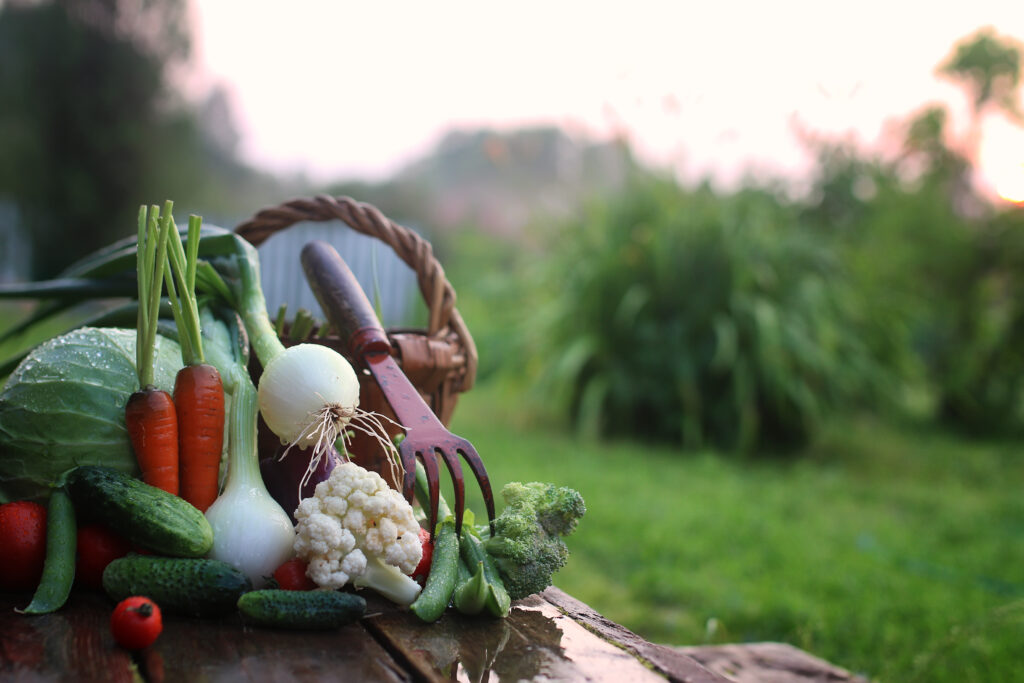There are some definite advantages to growing fall and winter vegetables apart from the fact that they can provide you with a year-round supply of healthy, nutritional foods. During the off-season, pests are not nearly as prevalent as they are during spring and summer. You also won’t have to fight so hard to keep weeds out of your garden, because they are in decline through the fall and winter.
Vegetables that grow well in fall and winter
Just because the summer sun has disappeared, it doesn’t mean that your gardening activity should cease for the year. Some of the best vegetables fare well in fall, for instance beets, broccoli, lettuce, cabbage, turnips, and others. In the wintertime, you’ll have no trouble producing garlic, leeks, onions, radishes, peas, potatoes, chard, spinach, rhubarb, and kale. Many leafy greens will thrive during winter as long as you provide them with the proper growing conditions described below.
Requirements for growing fall/winter vegetables
One of the first requirements for planting fall/winter vegetables is that you need to know how long it takes a plant to mature so it’s harvestable. For instance, spinach takes roughly 28 days to reach maturity so when your first frost typically arrives at around October 15, you would need to plant your spinach somewhere during the first week in September to give it ample time to grow.
You’ll have to strategize so as to make use of available sunlight in fall and winter, which means you should pull your row covers off even in very cold temperatures, in order to maximize sunlight usage. Planning for sufficient water may also be a challenge, especially in temperatures which are below freezing. However, this will be essential regardless of the temperature, so make sure you have some way of delivering an adequate water supply to your plants, even during extreme cold.
It’s best to protect your plants against the possibility of frost. Severe frost can damage a plant where all above-ground growth will die off before reaching maturity. This means you
should have some row covers handy whenever you’re alerted to the possibility of frost or extreme cold on the way to your area. The soil you plant your vegetables in should be enriched with cow manure, chicken manure, seaweed, or kelp to add organic material to the soil mixture. For fertilizer, you should include blood meal, bone meal, cottonseed meal, or bagged organic vegetable fortifier.
Some vegetables can be grown in pots or containers, but you should be aware that it will be necessary to provide enough room for them to grow in those containers, and you should have some way for drainage to occur in your pots. They will also need six to eight hours of sunlight each day to produce best results. The tools you’ll need for your fall/winter garden are basically the same ones you’d use in summer – rakes, spades, shovels, trowels, pots or planters, and garden hoses. Oh, and there might be one more you need for winter – a snow blower!
Where to obtain your supplies
Whatever kind of supplies you need for your fall and winter vegetable growing project, you’ll find them at Mendham Garden Centers. Here you’ll find tools, seeds, starter plants, pots, growing soil, fertilizer, and all the other equipment you might need to start a successful fall or winter garden.
Stop in at one of three New Jersey locations (Mendham, Annandale, and Chester) to get some ideas about what you might want to grow and have a chat with one of the friendly and experienced representatives, to firm up ideas for your growing project.

